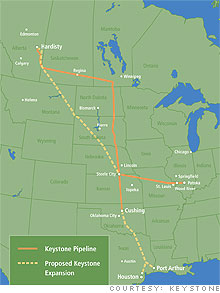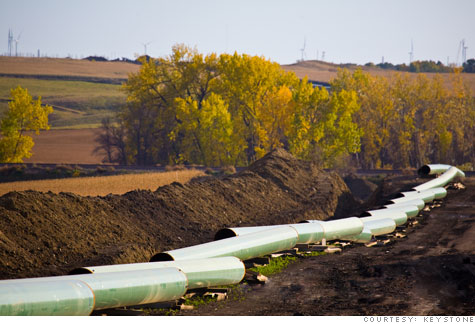TIME had a peace about China this week regarding their utterly massive housing bubble. Apparently the largest in history. If I remember correctly, I thought it said house prices have doubled 5 times in as many years. Large swaths of cities sit unattended with no occupants....
If it is a "bubble" or not depends upon how "bubble" is defined. Generally most understand bubble to be rapid rise in prices
driven by speculative demand with NO REAL NEED for the item of the bubble.
China is in the process, which will last about a decade or slightly less, of relocating a mass of people greater than half the entire US population. For three or more decades, the interior of China was mainly very marginal family farms and along the East coast factories with poorly paid workers making products for export, mainly to US & EU. China's leaders realized this was not stable path into the "glorious future." (The US & EU were living far beyond their means, with China's loans being a major reason why they could.) Thus, they started to develop the interior. (Actually this story is much like Brazil's: The new capital, Brazilia, was literally carved out of the jungle deep in Brazil's interior.)
With construction jobs available in the interior, the flow of farmer's children to the East to become exploited workers in the coastal city began to decrease. At its peak it was more than one million per month! For the last two years there has been a serious labor shortage in the coastal factories. Foxcomm not only improved the food in the company lunch halls, the dorms the workers sleep in, the working conditions, but also raised salaries by 30% in one year. None the less fewer Chinese came East to work in the coastal cities. So Foxcomm closed two of its coastal cites and relocated them to the interior. Many new or expanding old interior cities are growing more than 20% per year as China builds a modern, non-agricultural, economy in the interior.
Given the closing of factory dorms, the fact that most of the housing in the coastal areas would not even come up to US "slum standards" (Many unrelated people sharing two rooms* with toilet / shower at end of the hall for a dozen others to use, etc.) As this flow of people from the coastal area to the interior increases the new cities, not now occupied will be needed.
Also very important is the change in land laws. A little more than two years ago, the farmers (who never owned the land they farmed - the state does, still) were allowed to lease their right to use it to large corporations with tractors etc. At least 100 million former farmers are becoming urbanites as a result of this legal change. With a job in the city and their farm rent money they are a significant part of why China's domestic market is claiming a rapidly growing part of the GDP.
The Chinese are very "family connected." They don't want to live far from where their ancestors are buried.** They know now, with internet, that it is possible to have your own room etc. and in the new cities they will. Thus to come to the point,
the Chinese housing boom is NOT a bubble. By above definition of "bubble." I.e. there is real demand for much more and much better housing, which the increasingly richer Chinese can soon afford. It is true that much of the increase in rents and home prices has been driven by speculators. They can see this real demand would drive the prices up, so they have bought now, hoping to profit by re-sales later. This is coming to an end now. In some areas the price of housing is slightly decreasing. Getting loans to speculatively buy is increasingly harder. (Impossible from banks now, but bank interest paid on deposits is less than inflation so many with money, form unofficial pools of funds to make private loans still. - I forget the Chinese name for these "pools of funds")
What basically has happened is that the speculators made the price of housing that would exist a few years from now, occur now. Even with this acceleration, the price per square meter is significantly less that in the US. You (and Time) can not just look at the rapid rise of home prices and ignore the real needs / demand and fact it is cheap compared to US and say: "China has a housing bubble."
* Sleeping with many total strangers is a long standing part of China's history. All most all of the hotels for travelers in the interior do not have rooms. Instead, especially in North China where it get very cold in winter, there is a large tile platform elevated about a meter that all sleep on with their blankets. Hot combustion gases from a fire flow under this tile platform in winter. Many of the factory dorm rooms have six bunks in each small room. Especially women from the interior (where whole family slept in one room) do not feel secure unless they have others sleeping near them. With the internet and increasing wealth this cultural heritage is changing. The young now want a room of the own (or with a friend, or better a spouse) in a nice new secure modern high rise apartment building. To get that "naked weddings," another break with tradition, are growing more numerous - see footnote of post 35.
** When I worked at JUH/APL three offices down the hall from mine, was Dr. Chin's office. He had modest international fame as a recognized expert in combustion chemistry. He was retiring and I went to his "retirement lunch." There he explained why he was returning to China. He had long had offers to return as head of a chemistry department etc. and now had accepted one near where he was born. In part he wanted to help China grow by teaching in university there; but also he wanted to be buried near his ancestors, he said. This from a Ph.D. and long time resident of the US.
SUMMARY: If you want to know about China, read China Daily as I do every day, not Time Magazine but filter out their towing of the party line (except to know what it is). (For example during the last month or so there have been articles telling how the Yuan is not undervalued, that the US's trade deficits are the US's fault, that the US Congress will start a trade war which hurts everyone, especially Americans paying more, etc. almost every day.) It may sound very immodest but just reading my posts in the China related threads will give you a more accurate view of China than Time. I do not need to tell a story the US public wants to hear as Time does to sell its magazines. When I error, Quad will usually correct me.
PS “… US produces far less steel than China in a given month--8 million metric tons versus almost 60 million metric tons …” From:
http://www.investingdaily.com/ems/1...gx=d.kac,stid.12553,sid.250664,lid.6,mid.5840
Billy T comment: China also imports a lot of steel – steel usage is good index of growth, probably better than copper. – used in everything from cars, to high-rise apartments, to railroads, to wind machine and power line towers, etc.


